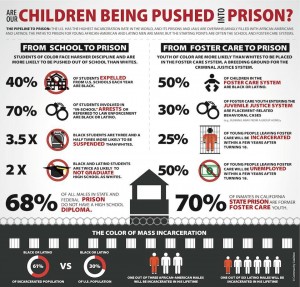“A pound of flesh” is a figurative way of referring to a harsh demand or spiteful penalty—the consequences of defaulting on a desperate bargain… Source: enotes.com
Survey any vice, assistant or principal about student discipline, and you are likely to get similar responses … We make discipline decisions on our policy, in accordance with our philosophy, we attempt to be transparent, we try to make kids learn from their mistakes. We involve parents, teachers and guidance.
Survey any teacher, staff, or aide and you might get these responses…. Our kids get away with too much, there are not enough suspensions, I just handle it myself because it is not worth it to send to the office, our administrators are not strict enough.
So, it seems that the two sets of stakeholders are viewing the issue from different perspectives… and this happens across the country probably more than we would like. I wrestle with this issue even though I feel like I have made decisions based on our district policies, in accordance with the Positive Behavior Interventions and Support, which is a nationally recognized approach to improving the climate and culture of schools. We work with consultants from a respected university who assist us with monitoring, tracking, and decision making in regards to classroom, and school wide management.
We have a committee that meets monthly to analyze student discipline referrals, both individually and through grade levels, and specific classrooms. In addition to analyzing the data, and identifying trends and re-mediating those trends in a systemic manner, the committee sets school-wide positive rewards for students who adhere to the basic rules/guidelines of the school: Be Safe, Be Responsible, Be Respectful. We have an instructional aide whose specific job responsibility is to work with teachers and students to ensure that students understand and learn from discipline. Yet, for some, its just not enough.
Critics of the program demand harsher punishments for students. They want to suspend individual students or punish entire classes without a clearly defined process. They want an “Old School” approach to discipline…. This is ironic because, as a student of education history, administrators who I have talked with (some who were in the role as far back as the 1970s) told me that suspensions were always used in extreme cases, especially in Elementary School. They report that working with parents and the students to correct the behavior was always the top priority. Often times, no actual discipline was awarded, but a stern talking to…. Sound familiar?
My hope is that as we continue to refine, and make research-based decisions on student discipline that we can everyone on board. I look forward to a day when classroom teachers have clear, consistent measures in place for dealing with classroom management. A day when teachers understand that kids are not perfect and are going to make mistakes. A day when students are not labeled “trouble makers” or “bad kids.” A day when teachers come into my office and report what they have done (warnings, parent conferences, PBIS referrals, guidance referrals, lunch detention, etc) and that we can work together to follow the policy on progressive discipline. A day when everyone truly understand the School to Prison Pipeline.
For further reading, and reflection:
Public Broadcasting System: Fact Sheet
Schools Becoming Dependent on Suspensions

In my 37 years of classroom experience, I found that back in the 70’s, students were afraid to get sent to the principal because of the consequences they would face at home. It was also very embarrassing to them to have to report to the principal. When students got suspended, they usually were punished at home-no TV, no playing with friends, etc. As the years progressed, especially during my last few years teaching, students were no longer afraid of authority and it was no big deal to be sent to the principal. In fact, many enjoyed it. I found there wasn’t a lot of parental support because many parents felt their students could do no wrong so it must be the teacher’s fault. Also, when students were suspended, many of them were home without parental supervision so they could do whatever they wanted-play video games, ho outside to ride their bikes, etc. There weren’t always consequences when the students got in trouble at school. I noticed that many of the younger, new teachers tried to be friends with students rather than be a disciplinarian-they wanted the students to like them and to be popular with the students and parents. Professionalism and respect, I feel, are very important to disciplining students. Just thought I’d share some things I found to be true through my years of experience.
Kathy,
Thanks for your comments. Although I disagree with a few points (Kids do not need to “fear” authority, we have a great deal of parental support but it is different then in the past, I don’t think teachers need to be friends or disciplinarians) I appreciate you taking the time to read and interact on this blog.
Spike